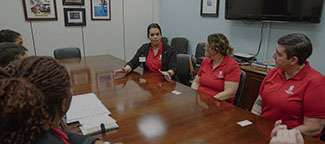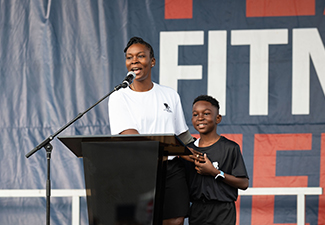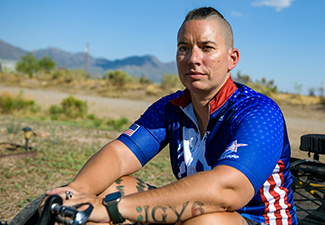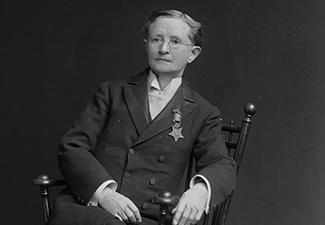Women
Warriors
Information & Insights About Women Veterans
Today, women are the fastest-growing population within the veteran community. They take on critical roles in every branch of service. Despite their contributions, their voices and stories often go unheard.
Wounded Warrior Project® (WWP) started the Women Warriors Initiative to better understand and respond to the challenges post-9/11 women veterans face. This effort helps raise awareness about their experiences and supports changes that meet their needs.
| Table of Contents |
| Women Warriors Report |
| Key Findings About Women Veterans |
| Challenges Women Veterans Face Today |
| Stories from Women Warriors |
| How WWP Supports Women Veterans |
Women Warriors Report
WWP created the 2025 Women Warriors Report to highlight the experiences of WWP women warriors. It looks at what affects quality of life, where more research is needed, and what changes could offer better support.
Download the Full Report Download the Executive Summary
For an ADA accessible version of the Full Report, click here.
How the Data Is Collected
The report combines results from the WWP Warrior Survey with personal experiences shared by WWP women warriors in focus groups across the country.
Key Findings About Women Veterans
Listening to women veterans is the first step to understanding their needs. Their voices reveal the challenges they face and guide the solutions they deserve. Recognizing these experiences ensures programs and policies meet women veterans where they are.
Who Women Warriors Are
This 360-degree view shows who WWP women warriors are and what affects their daily lives.
Injuries and Conditions Among Women Warriors
Service-connected injuries are a significant part of WWP women warriors' lived experiences.
While each woman’s experience is different, WWP women warriors most often reported the following conditions:
● Anxiety
● Depression
● Sleep problems
● Post-traumatic stress disorder (PTSD)
● Migraines or chronic headaches
They also most often reported the following injuries:
● Bone, joint, or muscle injury
● Hearing loss or tinnitus
● Military sexual assault
● Military sexual harassment
● Head injury
WWP women warriors experience different health challenges than male warriors.
A higher percentage of WWP women warriors reported the following:
● Military sexual assault
● Military sexual harassment
● Migraines and chronic headaches
● Anxiety
● Depression
● Problems of the immune system
● Difficulty conceiving or infertility
Military sexual trauma (MST) is an important topic of discussion.
53% of WWP women warriors reported they are MST survivors.
Even though MST wasn’t a direct question in focus group discussions, it came up as WWP women warriors talked about their personal experiences, access to care, and mental health.
Challenges Women Veterans Face Today
Women veterans face unique challenges, shaped by personal, social, and systemic factors. Their needs are complex and cannot be met with one simple solution. Important gaps in care and support remain.
The boxes below look at key areas that affect women veterans today. For a deeper look at WWP’s policy recommendations, explore the Women Warriors report.
Stories from Women Warriors
Leaving the military is a beginning, not an end. In this series, women veterans share what that change feels like — the challenge of starting over, the impact on mental health, and the strength found in community.
How WWP Supports Women Veterans
From using their voices to improve veteran policy to leaning on programs for mental health care, career growth, and community support, women veterans are building the tools they need to thrive on their own terms.







